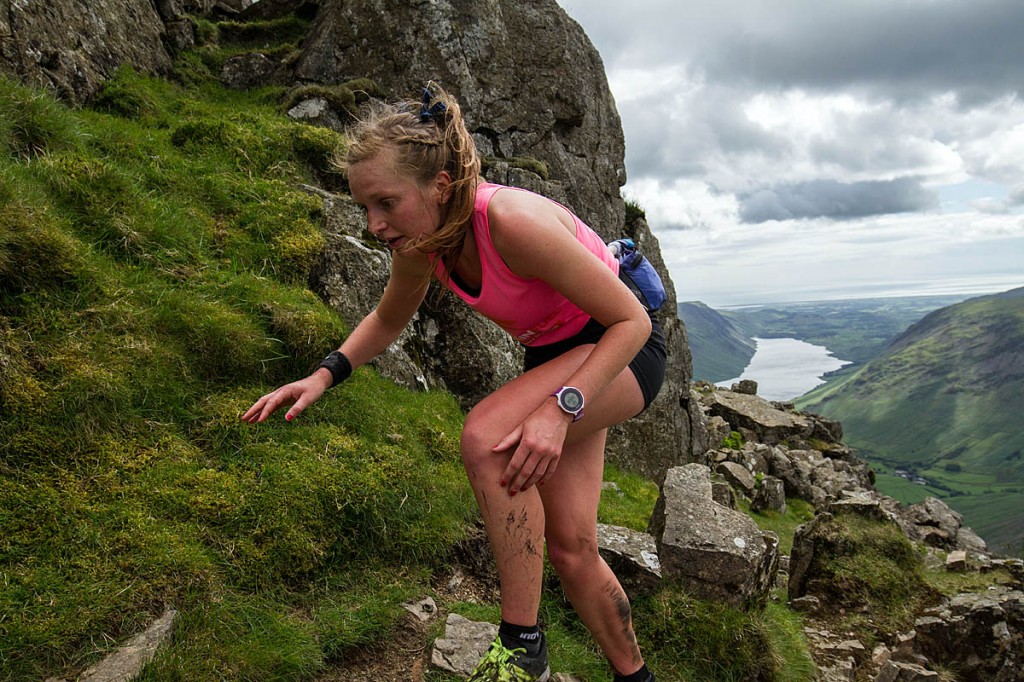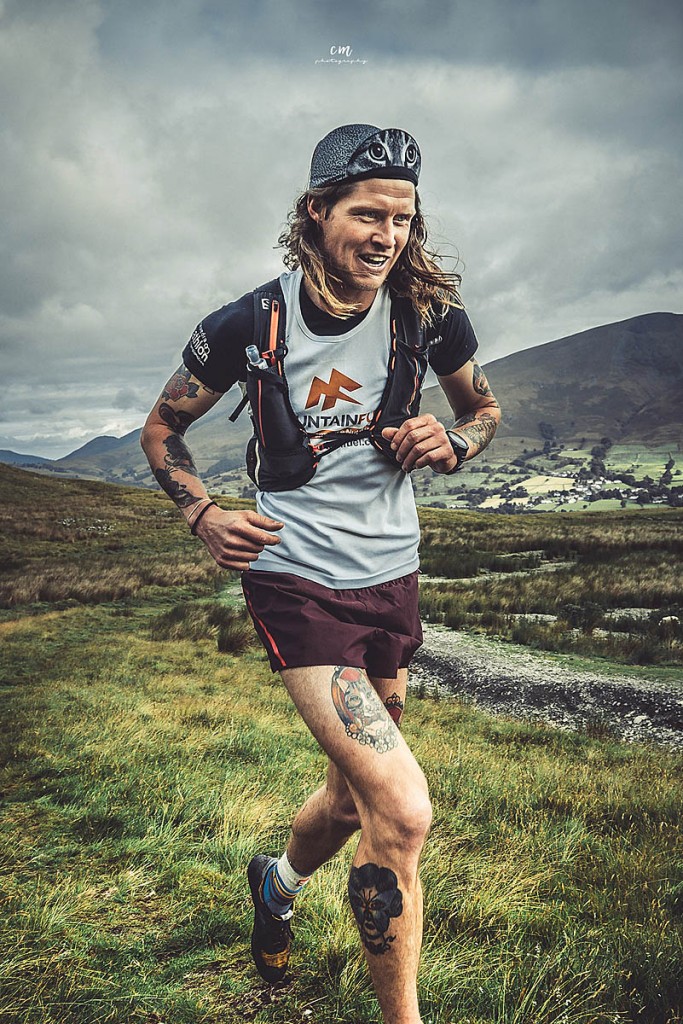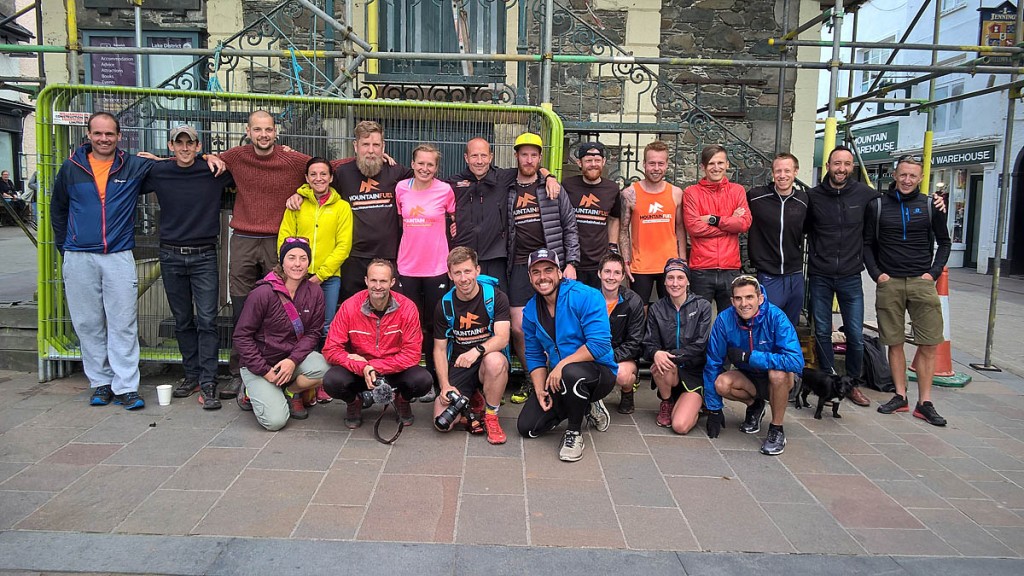A team of runners has beaten a series of records on a historic Lake District Challenge.
Two sets of fellrunners and ultrarunners went head to head on the Billy Bland Challenge, which follows the route of the Bob Graham Round over 42 Lakeland peaks.
One team set the second-fastest overall time for the 66-mile course, with the other close behind with the third-quickest aggregate time.
The challenge is broken down into five legs with various categories for men, women, mixed teams and veterans, for which records can be set. The Team Mountain Fuel runners managed six records at the weekend and both beat Billy Bland’s original time of 13hrs 53mins for the overall course.
His 1982 time for the Bob Graham Round sparked the ensuing Billy Bland Challenge, a relay event that has to take place in June.
Rupert Bonington, co-owner of Mountain Fuel, took part in the run. He said: “It is considered one the biggest challenges in English fellrunning, involving a 27,000 ft of ascent up Skiddaw and Blencathra, over the Helvellyn range, the Langdale Pikes, Scafell, Wasdale and Great Gable, starting and finishing at the Moot Hall in Keswick.”
He said two mixed teams of men, women including vets and open runners raced against each other in an attempt to beat the mixed team record of 16hrs 49mins with an eye on the fastest times and getting close to legendary fellrunner Billy Bland’s time.
Both teams consisted of 10 runners, with two runners each running one of the five legs together. The team was made up of a collective mix of ultra-, trail- and fellrunners, including local Keswick AC runners, some of whom hold individual leg records and were part of the Keswick AC record-breaking time of 12hrs 24 mins set in 2016, along with other Team Mountain Fuel runners from around the country, including some Team GB Mountain Running representatives.
Bonington said: “Despite being a mixed team which also included vets they managed to record the second- and third-fastest times in the history of the Billy Bland Challenge, being 12hrs 51mins and 13hrs 1min, and on top of this records were broken on every leg of the round.”
Runners began from the Moot Hall in damp, cloudy and windy conditions at 5am on Sunday, crossing three fells and finishing in Threlkeld. The first leg was a battle of the over-40s vets – closer to 50s for three of them – and saw co-owner of Mountain Fuel Rupert Bonington run with Kirsty Hall a British champion fellrunner versus local Bob Graham legends Andrew Slattery and Steve Angus.
“After slogging it out over 12 miles and 5,500ft of ascent over fells, bogs and a river the race came to the final descent and around 1½ miles where both teams chose to race down the steepest slope of Blencathra,” Bonington said. “The route is aptly named by locals as the Parachute Drop due to its steep nature. After running down rocky scree, sliding down steep grass and stumbling though heather and bracken then fording back and forth across steep mountain streams Kirsty and I completed the leg in 2hrs 40mins to record the fastest time for a mixed pair. Unfortunately, due to a sprained ankle injury Steve and Andrew finished the leg a few minutes behind in 2hrs 43mins.”
He said leg two has plenty of good running despite its steep climbs. “Once up top you run across the undulating Dodd fell tops to Helvellyn and finish with a couple of steep sharp climbs and descents to Dunmail Raise.
“The leg saw fellrunning champion Ben Mounsey and local top fellrunner Calum Tinnion versus international mountain trail-runner Alex Pilcher and Ultra Runner Mārcis Gubāts.
“Ben and Calum’s fell experience proved its worth as they were able to work together to navigate the leg at break neck speed knocking seven minutes off the leg record finishing in 2hrs 20mins, some 40 minutes ahead of Alex and Mārcis who unfortunately had navigation issues.” The leg is about 13 miles with 6,000ft of ascent and covers 12 felltops.
Leg three is described by Bonington as a tough one with every type of terrain that the Lake District can throw at you, including a climb if you choose to scramble up Broad Stand between Scafell Pike and Scafell. Keswick AC women set up a rope for their record-breaking attempt.
He said: “James Appleton and Mark Lamb had it all to do as their team was some 45 minutes behind the pairing of veteran Phil Winskill and Mark McGoldrick.
“However somehow they managed to close the gap between the teams to five seconds by the time they sprinted into Wasdale in a record-breaking time of 3hrs 2mins. This knocked eight minutes off the previous record which James was also a part of and now also means that Mark holds the fastest men’s times for leg one and leg three. This was a phenomenal feat having run 15½ miles with 7,400ft of ascent, while ascending and descending 15 felltops. Phil and Mark completed the run in a fast 3hrs 45mins.”
Leg four climbs out of Wasdale up the steep face of Yewbarrow and it was here that the chase was on. “Having a five-second lead meant that the teams ran head to head with the lead changing hands over and over again until Jacob Snochowski and England mountain runner Nichola Jackson managed to pull away between Kirk Fell and Great Gable,” Bonington said.
“By this stage, ultrarunning veteran Dave Troman was struggling as he’d had to run so fast he’d not drunk his energy fuel. His fellrunning partner Lee Newton had managed to drink both his bottles and was still going strong so turned his attention to Dave and through sheer grit and determination they battled on scrambling up and over the rocky terrain.
“Jacob and Nichola were incredible beating the men’s record by 19 minutes at 2hrs 36mins with Lee and Dave also coming in under the record in 2hrs 41 mins.”
The time was an hour quicker than when Troman last ran it as part of the vets’ team and 29 minutes quicker for Newton than his time the previous year. The teams ran just over 11 miles with about 6,200ft of ascent while traversing nine felltops.
By the final leg, 10 minutes separated the teams. Dan Page and Ste Lord, both experienced ultrarunners were up against veteran women and GB vest mountain-runners Sally Fawcett and Julie Briscoe.
The leg consists of three fells and a 10km road section and while being marginally the shortest is considered equally brutal due to the transition from fell to road and the speeds travelled.
Bonington said: “Dan and Ste ran an incredible leg based on their experience and were able to touch the Moot Hall door to stop the challenge in 1hr 28mins, having managed some sub five-minute miles across the 11 miles and 2,400ft of ascent.
“Sally and Julie were equally amazing, creating a new fastest ladies time of 1hr 30mins, which included six-minute miles on the road section back to the Moot Hall.
“The teams were roared home by everyone involved, from the team who were up on the fells filming and photographing to the friends who drove runners around the Lakes. This was a special moment for everyone.
“This is not a race where you win a medal or a t-shirt; there is in fact no official race. This is a challenge for clubs or teams to have a fantastic time on the fells and attempt to post their fastest times.
“Having it as a head to head race certainly helped the teams run faster and made it more of a spectacle for all involved.”
Rupert Bonington, who is also a Keswick AC member, has challenged local rivals Helm Hill Runners veterans team to a race the following year as they recently recorded the fastest veterans’ time, taking the title from Keswick.
“This challenge has been accepted as we hope many other clubs and teams do so in years to come,” he said.



Rupert Bonington
29 June 2017One correction. The final leg time of Sally Fawcett and Julie Briscoe was 1hr 35mins.
Hans
04 January 2024We would like to thank you all over again for the beautiful ideas you offered Jesse when preparing a post-graduate research and also, most importantly, for providing
all of the ideas within a blog post. In case we had been aware of your blog a year ago, we may have been saved
the useless measures we were participating in.
Thank you very much. adults toys